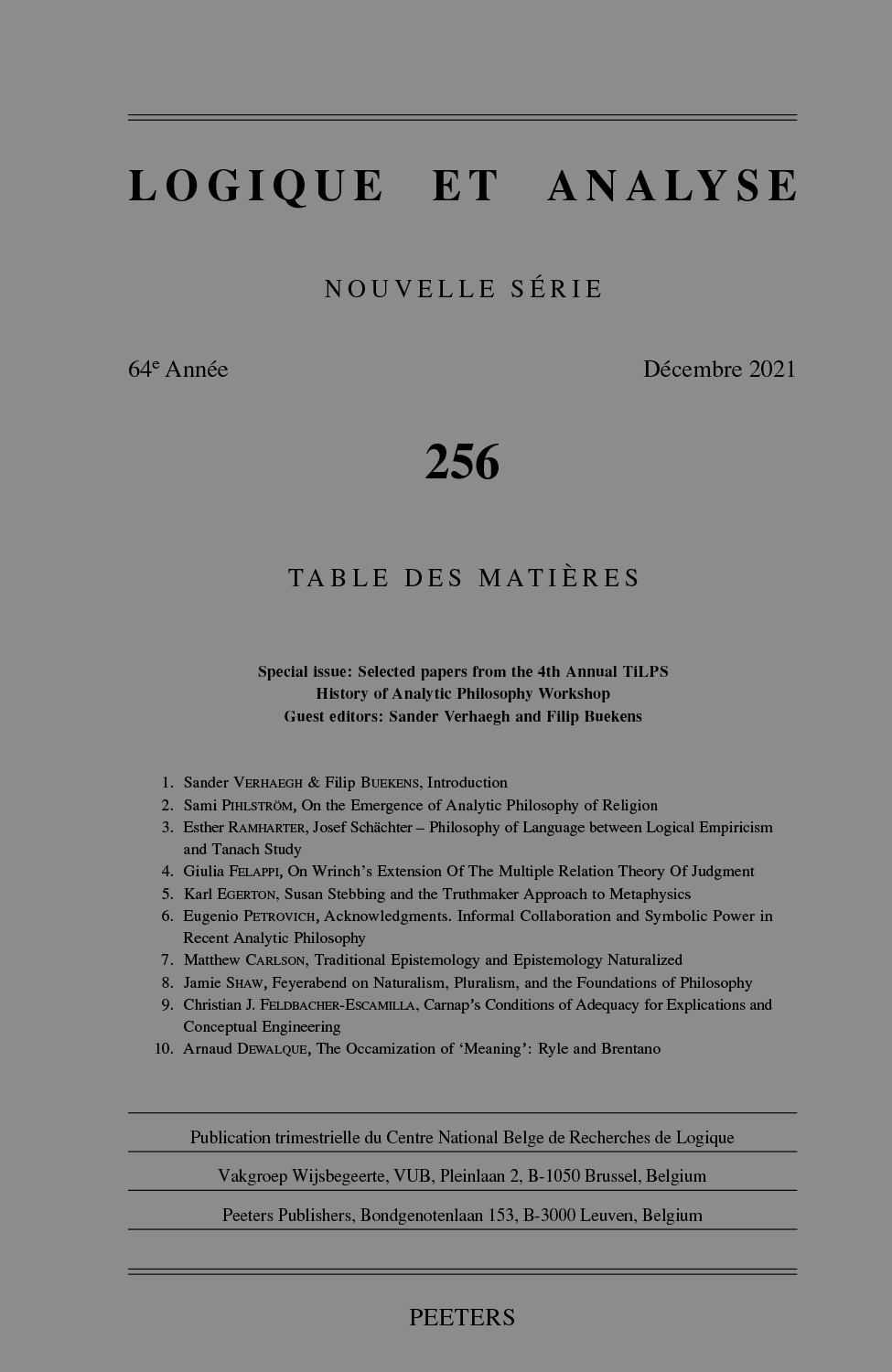 previous article in this issue previous article in this issue | next article in this issue  |

Preview first page |
Document Details : Title: Analytic Inference and the Informational Meaning of the Logical Operators Author(s): D'AGOSTINO, Marcello Journal: Logique et Analyse Volume: 227 Date: 2014 Pages: 407-437 DOI: 10.2143/LEA.227.0.3053512 Abstract : This paper elaborates on some ideas put forward in [20] and provides a more detailed exposition of an 'informational semantics' for the logical operators. In this semantics the meaning of a logical operator is specified solely in terms of the information that is actually possessed by an agent. We show that the informational meaning of the logical operators that arises from this semantics is consistent with a strong manifestability requirement: any agent who grasps the (informational) meaning of the logical operators should be able to tell, in practice and not only in principle, whether or not s(he) holds the information that a given complex sentence is true, or the information that it is false, or neither of the two. This informational semantics also allows us to draw a sharp demarcation between 'analytic' and 'synthetic' (i.e. non-tautological) inferences in propositional logic, which defies the empiricist dogma that all logical inferences should belong to the first class. It also provides the means for defining degrees of syntheticity of logical inferences that may be related, on the one hand, to the 'cognitive effort' required by an agent to recognize their validity and, on the other, to the computational resources that need to be consumed for this task. |
 |


